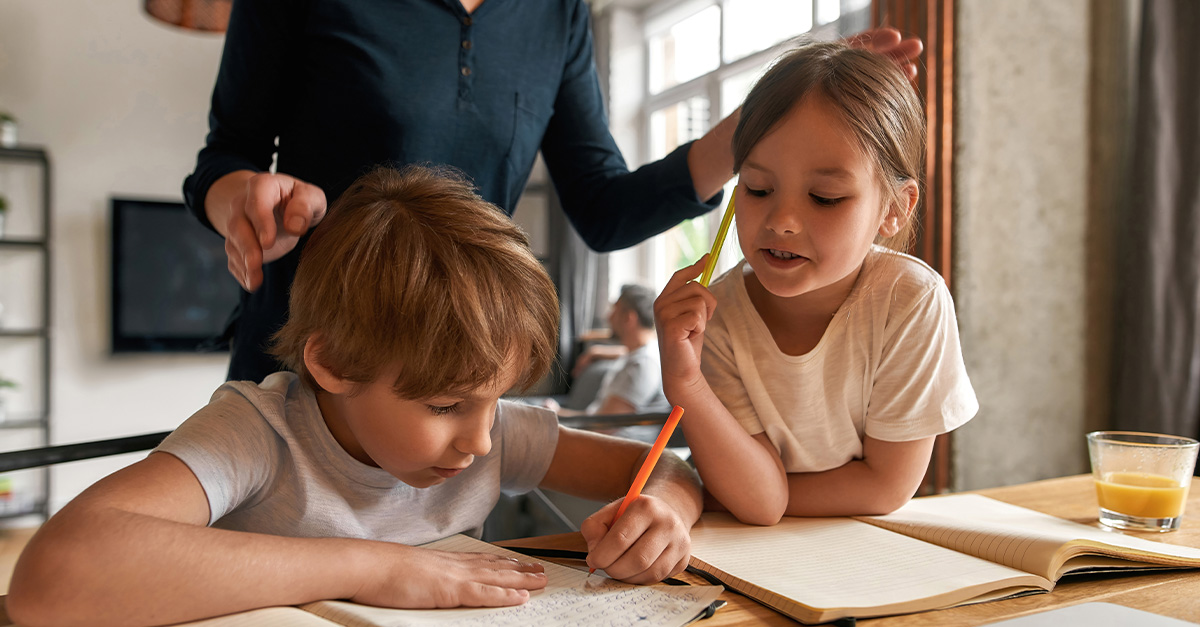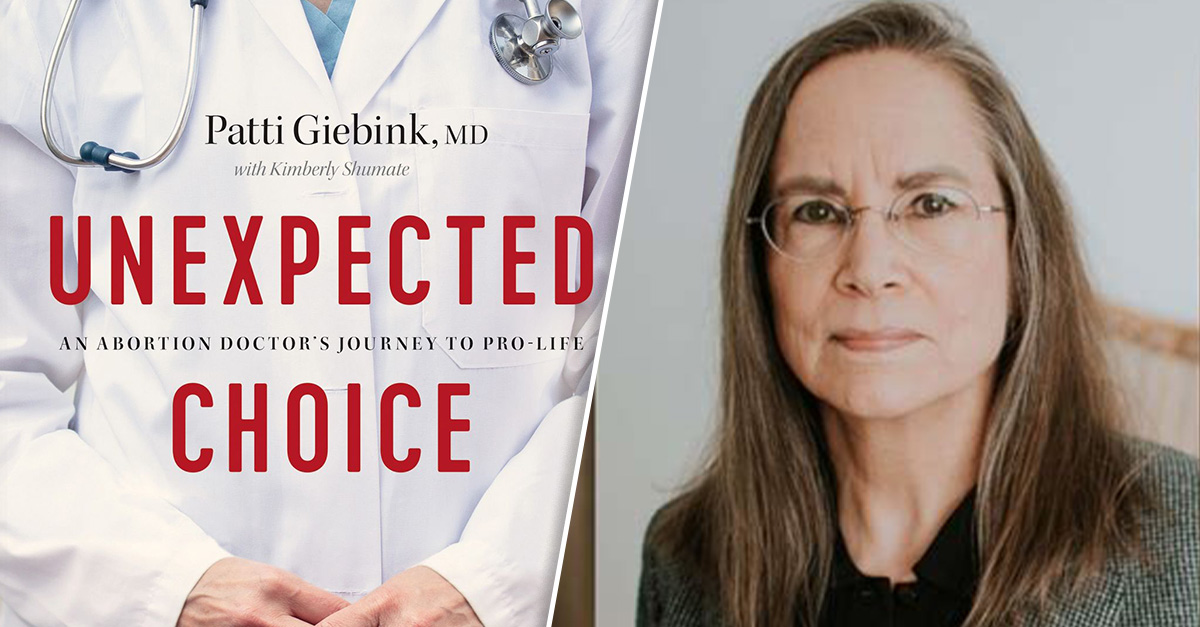


Get a free copy of Parental Rights & Education when you subscribe to our newsletter!

Thanks to the pandemic and radical school agendas, home education has gone from last-choice to first-choice for millions of parents seeking a better education for their children.
When my parents first decided to homeschool my sisters and I nearly two decades ago, they were viewed as radical, a bit weird, and definitely not cool. Friends and family weren’t shy about voicing their opposition, arguing that we would miss out on the “real” school experience and end up both socially awkward and tragically undereducated in complex subjects like math and science.
There were also people in our community who believed that our parents were trying to shelter us from the real world. Some Christians even told my parents that they should allow us to serve as “missionaries” in the public schools rather than educate us at home, where we would be “hiding” our lamps under a bushel, so to speak.
Despite the doubts thrown at them, my parents stuck to their decision, deciding that homeschooling was best for our family.
Now, more parents are deciding that homeschooling is also what’s best for their families — a lot more, in fact. A U.S. Census Bureau Household Pulse Survey found that homeschooling surged by 56 percent between the 2019-2020 and 2020-2021 school years. This survey also reported that there are now 5 million homeschoolers across the country, doubling the number of families choosing to homeschool their children.
The biggest increase was found among the black community. In a little over a year between 2020 and 2021, the National Black Home Educators grew from 5,000 members to 35,000. Only 3.3 percent of black families homeschooled at the beginning of 2020, and now that percentage has grown to 16.1 percent.
What’s behind all this?
One driving factor was, of course, the COVID lockdowns. In response, many schools went virtual for the rest of the school year and into the next one, a policy that radically altered the home life of millions of students and parents. The idea of their child staring at a screen all day didn’t sit well with many parents, who decided that since they had to be at home anyway, they might as well do the teaching themselves. Many soon found that not only were they good at it, but they enjoyed it. As a result, when schools went back to in-person learning, many students did not.
While it’s tempting to contribute this new rise of homeschooling solely to the challenges of trying to get kids to sit still and pay attention to Zoom sessions without losing their sanity, there were greater, more ominous reasons at play.
While children were home doing virtual learning, their parents saw, perhaps for the first time, what their children were actually being taught. And they were not happy with it.
In the past, the only time parents would have had the opportunity to observe their child’s learning environment would have likely been for a class party or a special event when the subject is fun and when teachers, cognizant that they are being watched, put on the best possible front. Most parents never had the chance or time to sit in on their child’s class for any length of time and truly see firsthand what they were learning.
Virtual learning during COVID-19 lockdowns changed all of that, awakening parents to the reality of education in the progressive era. They suddenly recognized that the curriculum was not the familiar one of their own school years: the three R’s, along with science and history. Much of the instructional material was instead perverted, hostile to traditional values, and even dangerous.
Not only were parents appalled by what their children were being exposed to and taught, but they also realized how little their concerns and input actually meant to school leaders. After seeing their objections to the curriculum and teaching environment ignored and sometimes attacked, many parents decided that they really had no choice but to take their children’s education into their own hands.
Even with the return to in-person schooling, the infiltration of Critical Race Theory in our public schools, transgender policies allowing boys in girls’ bathrooms and locker rooms, parents being labeled as “domestic terrorists” for speaking out on behalf of their children, sex and LGBTQ education for kindergarteners, anti-American teaching, abusive mask policies, and inappropriate behavior at schools have made many parents pull their children out and set up their own home-based classroom — even if that required hard sacrifices, like giving up a career or moving to a lower-cost area.
Some parents also realized that as school standards have been watered down, they could — with the help of homeschool groups and curriculum publishers — actually do a better job at teaching basic and even the more challenging subjects better than the public schools. They could also better customize the learning to their child’s unique learning needs, whether it was because they were a bit slower to pick up on some topics or because they were more advanced and in need of a more engaging or accelerated curriculum.
Moreover, many parents now recognize that if they want their children to learn about God, our history, and traditional family values, it is up to them; the government not only doesn’t teach those things anymore, but it is likely to undermine them. As we see the decline of the nuclear family in our nation, we can all agree something needs to be done. Homeschooling could be a step in the right direction that gives authority back to parents and re-emphasizes the importance of a strong family unit.
Homeschooling was one of the best things my parents ever did for my sisters and me. We enjoyed everything about it! We homeschooled on the Abeka program, which provides recordings of teachers teaching a class of students for the entire year, so we felt like we were part of a classroom. We loved our subjects and the teachers, and we loved the fact that we could get done with our schoolwork by early afternoon and have the rest of the day to play or pursue activities that we were passionate about.
And no, we didn’t turn out “socially awkward” like so many people assumed would happen. We went to church, attended youth group, and were very active on our high school and club swim teams.
People were worried about what we were missing out on, but I always felt that non-homeschoolers were the ones missing out. I got to stay home all day with my sisters. We were able to travel more, have more fun experiences, and make extra family memories because of the flexibility of homeschooling. We didn’t have to deal with bullies, drama, and cliques. We were able to learn about world history starting with Adam and Eve. We learned about American history in a way that made us so proud to be Americans. We had Bible classes every day that strengthened our faith and prepared us for life.
Homeschooling was once considered the last-case scenario for parents. But today, it’s increasingly becoming a first-choice option for parents looking for an alternative to public schools. For parents, homeschooling can not only play a role in saving your children from being infected by the agenda of an increasingly coercive and secular government, but it provides you with an even greater opportunity to share in your child’s development and positively shape his or her worldview and future. And what could possibly be cooler than that?
